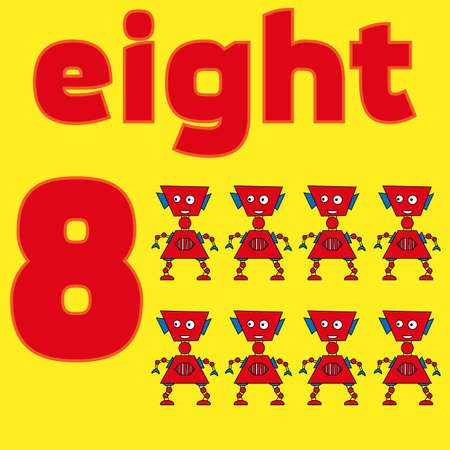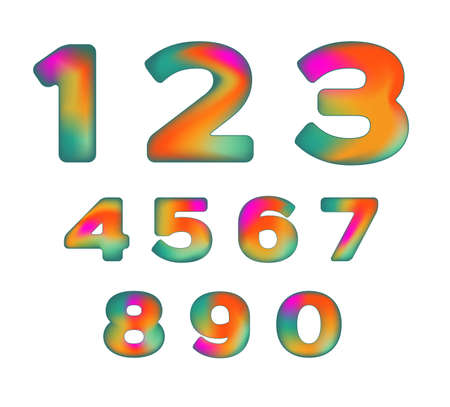Introduction to Dream Interpretation in American Culture
Dreams have always fascinated people across the world, and in American culture, they hold a special place as windows into our subconscious minds. Many Americans view dreams not just as random nighttime images, but as meaningful messages that can offer guidance or insight into our daily lives. Understanding what our dreams mean has become a popular way to explore personal growth, emotional well-being, and self-discovery.
The Role of Dreams in American Society
In the United States, dreams are often discussed in both casual conversations and professional settings. From sharing strange dreams over morning coffee to reading dream interpretation books, many Americans are curious about what their dreams might reveal. Psychologists like Sigmund Freud and Carl Jung have influenced how Americans think about dreams, suggesting that analyzing them can help us better understand ourselves.
Why Interpret Dreams?
People turn to dream interpretation for many reasons. Some want to solve personal problems, others seek comfort after nightmares, and some simply enjoy the mystery of decoding symbols. Interpreting dreams is seen as a tool for self-reflection and growth, helping individuals make sense of their emotions and life events.
Common Ways Americans Explore Dream Meanings
| Method | Description |
|---|---|
| Dream Journals | Writing down dreams upon waking to identify patterns and symbols over time. |
| Books & Online Resources | Using guides to look up common dream symbols and their meanings. |
| Therapy Sessions | Discussing recurring dreams with therapists to uncover deeper meanings. |
| Group Discussions | Sharing dreams with friends or online communities for different perspectives. |
For many Americans, dream interpretation is more than just a fun activity—it’s a meaningful part of self-discovery. By paying attention to the symbols and stories in their dreams, people hope to gain new insights about who they are and what matters most to them.
2. Symbols of Flying and Falling: Aspirations and Anxiety
Understanding Flying and Falling in American Dream Culture
Dreams about flying and falling are some of the most common symbols people in America report. These dreams often stand out because they trigger strong emotions—freedom, excitement, fear, or vulnerability. Let’s explore what these dream themes can reveal about our inner hopes and worries.
Flying Dreams: Soaring Above Challenges
When Americans dream of flying, it’s usually a sign of ambition or a desire to break free from limitations. Many people say flying dreams feel uplifting or exhilarating, representing:
- Personal Freedom: Wanting to escape daily stress or routine.
- Success and Ambition: Reaching new heights in career or personal life.
- Control: Feeling empowered and in charge of one’s direction.
Sometimes, though, flying dreams can also mean a wish to avoid problems by “soaring above” them instead of facing them directly.
Common Feelings Linked with Flying Dreams
| Emotion | Possible Meaning |
|---|---|
| Elation | Pride in achievements or newfound independence |
| Anxiety | Nervousness about ambitions or changes ahead |
| Relief | Letting go of burdens or past worries |
Falling Dreams: Facing Insecurity and Uncertainty
On the other hand, falling dreams tend to be unsettling. In American culture, dreaming of falling is often linked to feelings of:
- Losing Control: Worrying about mistakes at work or home.
- Anxiety: Fears about failing expectations or letting others down.
- Insecurity: Self-doubt about skills or relationships.
This type of dream is common during stressful times—starting a new job, moving to a new city, or going through big life changes.
Main Triggers for Falling Dreams in the U.S.
| Situation | Description |
|---|---|
| Work Pressure | Anxiety over deadlines, promotions, or job security |
| Relationship Struggles | Fear of conflict or losing someone important |
| Major Changes | Nervousness about moving, graduating, or financial shifts |
The Takeaway on Flying and Falling Symbols
If you find yourself dreaming of soaring through the sky or tumbling downwards, think about what’s happening in your waking life. Flying dreams might point to big hopes or a need for more freedom. Falling dreams could signal stress or insecurity. Both are natural responses to life’s ups and downs—and understanding these symbols can help you discover what matters most to you right now.

3. Teeth, Exams, and Public Nudity: Fears of Vulnerability and Judgment
Dreams about losing teeth, taking exams, or suddenly finding yourself naked in public are surprisingly common in American culture. These dream symbols often reflect our deepest anxieties about being exposed, judged, or not meeting expectations. Understanding what these dreams mean can help you explore your feelings about self-image, confidence, and how you handle pressure from society.
Why Do Americans Dream About Losing Teeth?
Losing teeth in a dream is one of the most reported dream symbols in the United States. Many people wake up feeling unsettled after such dreams. In American culture, healthy teeth are often linked to attractiveness, youth, and even success. So, dreaming of losing teeth can relate to worries about:
- Aging or losing vitality
- Fear of embarrassment
- Anxiety over appearance or first impressions
- Feeling powerless or lacking control
| Teeth Dream Scenario | Possible Meaning |
|---|---|
| Teeth falling out one by one | Gradual loss of confidence or control in life |
| Teeth crumbling or breaking | Concerns about self-image or fear of rejection |
| Spitting out teeth in public | Worries about being exposed or humiliated in front of others |
The Classic Exam Dream: Anxiety About Performance
If you’ve ever dreamed about showing up for a test unprepared—or realizing there’s an important exam you forgot to study for—you’re not alone. Exam dreams are especially common among students and professionals in America, where academic and career achievements are highly valued.
- Feeling tested in real life situations (work, relationships)
- Fear of failure or disappointing others
- Perfectionism and high personal standards
- Anxiety about the future or unknown outcomes
Common Exam Dream Scenarios and What They Might Mean:
| Exam Dream Scenario | Interpretation |
|---|---|
| Arriving late for an exam | Anxiety about missing opportunities or deadlines |
| Sitting for an exam without preparation | Lack of confidence in your abilities or preparation for challenges ahead |
| Taking an exam in a foreign language | Feeling unqualified or misunderstood in a situation at work or home |
Naked in Public: The Ultimate Vulnerability Dream
The “naked in public” dream is another classic that many Americans experience at some point. This dream taps into universal fears but also highlights specific cultural concerns about image, privacy, and social acceptance.
- Fear of exposure—both literally and emotionally
- Feeling unprepared or out of place in a social setting
- Anxiety over being judged for who you really are
- Sensitivity to criticism from peers or society at large
Cultural Takeaway:
These dreams remind us that beneath the surface, many people share similar insecurities about how they’re seen by others. By paying attention to these symbols—and what triggers them—you can learn more about your own worries around vulnerability and judgment. Exploring these dreams can be the first step toward greater self-acceptance and resilience against outside pressures.
4. Chase Dreams and Escaping Danger: Confronting Challenges
Chase dreams—where you find yourself running from someone or something—are some of the most common dream experiences in American culture. Whether it’s being chased by an unknown figure, a wild animal, or even a natural disaster, these dreams can feel intense and stressful. But what do they really mean? And why do so many Americans have them?
Why Do We Have Chase or Escape Dreams?
In everyday American life, people face various pressures, from work deadlines to personal responsibilities. Chase dreams often reflect feelings of anxiety, stress, or unresolved conflict. They are your mind’s way of signaling that you may be avoiding a problem or feeling threatened by a situation in waking life.
Common Chase Dream Scenarios and Their Meanings
| Chase Scenario | Possible Meaning |
|---|---|
| Being chased by a person | Avoiding confrontation or responsibility |
| Running from an animal | Suppressing primal instincts or fears |
| Escaping a natural disaster (tornado, flood, etc.) | Overwhelmed by uncontrollable life changes |
| Hiding from an unknown force | Anxiety about the future or unknown outcomes |
Responding to Stress: What Can You Learn?
If you regularly have chase dreams, it might be time to look at what’s causing stress in your life. Are you facing a challenge at work or school? Is there a difficult conversation you’re avoiding? These dreams can be a reminder to confront issues directly instead of running away from them.
Tips for Self-Discovery Through Chase Dreams:
- Identify the pursuer: Think about what or who is chasing you. This could reveal what you are avoiding.
- Notice your emotions: Are you scared, frustrated, or exhausted during the dream? Your feelings can give clues about your real-life stressors.
- Reflect on recent events: Did something stressful happen recently that could be influencing your dreams?
- Consider action steps: Use the dream as motivation to face challenges head-on rather than escaping them.
This approach helps transform unsettling chase dreams into opportunities for personal growth and self-discovery—one of the key themes in understanding common dream symbols within American culture.
5. Animals, Water, and Weather: Emotional States and the Subconscious
Understanding Common Dream Symbols in American Culture
Many people across the United States report seeing animals, water, and weather events like storms in their dreams. These dream symbols often carry deep meanings and can help us understand our emotional state, hidden thoughts, or even changes happening in our lives.
Animals: Instincts and Relationships
Dreams about animals are very common. In American culture, different animals often symbolize specific traits or emotions. For example, dreaming of a bear might mean you need strength to face a challenge, while a dog could represent loyalty or friendship. Here’s a quick guide to what some common animals might mean in your dreams:
| Animal | Typical Meaning |
|---|---|
| Dog | Loyalty, friendship, protection |
| Snake | Transformation, hidden fears, healing |
| Bear | Courage, power, introspection |
| Bird | Freedom, new perspectives, hope |
| Cat | Independence, curiosity, intuition |
Water: Emotions and Intuition
Water is another powerful symbol in dreams. It usually represents feelings and emotions. Calm water may suggest peace of mind or contentment, while rough or muddy water could mean confusion or emotional turmoil. Americans often dream of oceans, rivers, or rain when they’re going through big changes or feeling overwhelmed.
| Type of Water | Possible Meaning |
|---|---|
| Calm lake or pond | Inner peace, clarity |
| Stormy ocean | Anxiety, uncertainty about the future |
| Muddy river | Muddled emotions or unclear path ahead |
| Rainfall | Cleansing, renewal, sadness (depending on context) |
Weather and Storms: Change and Life Transitions
Dreaming about weather—especially storms—is very common in American culture. Storms can reflect inner chaos or big life transitions. For example, tornadoes in dreams often point to feeling out of control or stressed by sudden changes. On the other hand, sunshine after a storm might suggest hope and better times coming your way.
| Weather Symbol | Interpretation |
|---|---|
| Tornadoes/Hurricanes | Turbulent emotions; fear of sudden change |
| Thunderstorms/Lightning | Burst of insight; anger; dramatic shifts in life or mood |
| Clear skies after storm | A sense of relief; optimism; overcoming difficulties |
| Snowfall | Purity; feeling isolated; quiet reflection |
The Takeaway: Dream Symbols as Personal Guides
If you keep seeing the same animals, water scenes, or weather in your dreams, it might be your mind’s way of helping you process feelings or prepare for change. Paying attention to these symbols can offer valuable clues about your emotional health and where you are on your journey of self-discovery.
6. Turning Dream Interpretation into Personal Growth
Understanding Your Dreams: A Practical Guide
Dreams can be mysterious, but they often hold clues to our feelings, thoughts, and life challenges. In American culture, common dream symbols—like flying, falling, or losing teeth—are more than just nighttime stories; they can help us learn about ourselves. Here’s how you can use these dream symbols for self-reflection and personal growth.
Recognizing Recurring Symbols
If you notice the same symbol showing up in your dreams again and again, it’s a sign that your mind wants you to pay attention. For example, dreaming about being chased might mean you’re avoiding a problem in real life. Here’s a quick guide to some typical American dream symbols and what they might represent:
| Dream Symbol | Possible Meaning | Self-Discovery Tip |
|---|---|---|
| Flying | Freedom, ambition, escaping limits | Ask yourself where you want more freedom or control |
| Falling | Loss of control, fear of failure | Reflect on situations making you anxious or insecure |
| Losing Teeth | Anxiety about appearance or communication | Think about recent changes or fears about self-image |
| Being Chased | Avoidance, stress, running from issues | Identify what problems you might be avoiding in daily life |
| Taking a Test Unprepared | Performance anxiety, fear of judgment | Consider where you feel unprepared or judged right now |
Using Dream Symbols for Self-Reflection and Growth
Step 1: Keep a Dream Journal
Write down your dreams as soon as you wake up. This helps you remember details and spot patterns over time.
Step 2: Identify Emotions Linked to Symbols
Notice how each dream makes you feel. Are you scared, excited, or confused? Connecting emotions to symbols gives clues to what’s happening in your waking life.
Step 3: Ask Yourself Key Questions
- What’s happening in my life when I have this dream?
- Is there something I’m avoiding?
- Do I need more freedom or confidence?
- Am I worried about how others see me?
Step 4: Take Small Actions Based on Insights
If your dreams point out stress or fear, think about one thing you can do to address it. For example, if you dream about being unprepared for a test, try organizing your day better or asking for help at work or school.
Cultural Context Matters
The meaning of dream symbols can be influenced by American values like independence, achievement, and self-expression. Recognize that your personal background and experiences also play a role in how you interpret your dreams.


